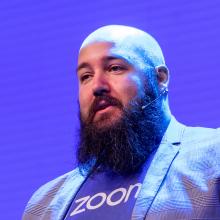Abstract
What is an unconference?
An unconference is a participant-driven meeting. Attendees come together, bringing their challenges and relying on the experience and know-how of their peers for solutions. A professional facilitator is also there to help keep the discussion moving forward, but where it goes is up to the participants.
It's a facilitated peer group that avoids the hierarchical aspects of a conventional conference, such as a top-down organization. Only the broad themes are predetermined. Everything else is just space for attendees to sound off ideas together, relate to shared challenges and rewards, and identify new ideas and goals.
Our unconference sessions have been based on the Open Space Technology and Lean Coffee format since 2006.
Why are we doing unconference sessions?
We have designed QCon for senior software practitioners. That role comes with demanding challenges and complex problems.
Connecting with your peers in a structured environment allows you to:
- Broaden your perspective with the benefit of the experience of others.
- Challenge how you've been doing things by breaking out of your bubble.
- Learn from peers who have already overcome the challenges you're facing now.
- Benchmark your solutions against other teams and organizations.
- Get real-world perspectives on challenges that might be too novel or specific to find solutions in books or presentations.
- Validate your technical roadmap with real-world research.
- Connect with others like you and build relationships that go beyond the event.
Speaker

Shane Hastie
Global Delivery Lead @SoftEd, Lead Editor for Culture & Methods @InfoQ
Shane leads the Culture and Methods editorial team for InfoQ.com where he hosts the weekly InfoQ Culture Podcast. He is the Global Delivery Lead for SoftEd.
Over the last 30+ years Shane has been a practitioner and leader of developers, testers, trainers, project managers and business analysts, helping teams to deliver results that align with overall business objectives. He has worked with large and small organisations, from individual teams to large transformations all around the world. He draws on over 3 decades of practical experience across all levels of Information Technology and software intensive product development. Shane was a director of the Agile Alliance from 2011 to 2016 and was the founding Chair of Agile Alliance New Zealand. Shane is an ICF registered Professional Coach.
“I firmly believe that humanistic way of working and the agile mindset are desperately needed in organisations all around the globe today. Taking agile values and principles beyond software is important and making sure they are properly embedded is absolutely crucial for success – we’re in an industry that touches every aspect of people’s lives and massively influences society as a whole and I want to be a part of making sure that industry is both ethical and sustainable.”









